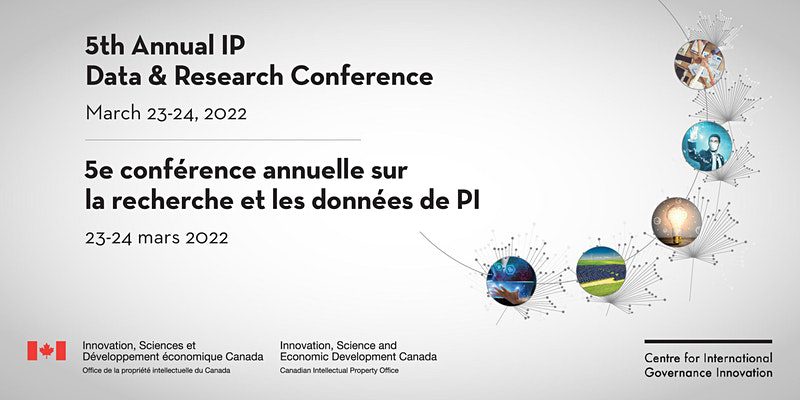
 Tianchu Gao is an IPilogue Writer and a 1L JD Candidate at Osgoode Hall Law School.
Tianchu Gao is an IPilogue Writer and a 1L JD Candidate at Osgoode Hall Law School.
This article is part of a series covering the 5th Annual IP Data & Research Conference, hosted by the Canadian Intellectual Property Office and the Centre for International Governance Innovation.
Session III from the 5th Annual IP Data & Research Conference focused on IP in the context of the Covid-19 pandemic. The economic impact of Covid is not as bad as expected, partly because of the prosperous IP industry in the digital world. The pandemic, in effect, accelerated the development of IP-related entrepreneurial activities. The presentations in this session look at the power of IP in economic and social growth.
In the first presentation, Carolina Arias Burgos, an economist at the European Union Intellectual Property Office, discussed trademark filing as a leading indicator of the state of the European economy. Data shows that EU trademark filings correspond well with other economic indicators such as employment, domestic demand, GDP, and the overall attitude of investors toward a particular market (sentiment/confidence indicator). Domestic demand, confidence indicator for the retail sector, and Gross Capital Formation have cyclical correspondence to EU trademark filings. The values of these indicators are closely interrelated, shaped by their past values and the current and past values of other indicators (Multivariate VAR models). Burgos is still working on the model to include more variables and restrictions in VAR. It will hopefully generate more accurate forecasts in the future.
The second presentation examined Gray Barski and Alex Lehmann‘s study taking a textual approach to analyzing trademark activity during the pandemic. They extracted the goods and services statements from around 300,000 trademark applications between 2010 and 2021, and the study looks at the topics and word meanings of these applications. Their research shows that pandemic-era trademark activities fundamentally changed in the application text context. These changes vary based on Nice class and application country origin.
Mairead Matthews and Faun Rice, from Information and Communications Technology Council (ICTC), focused their presentation on the interaction between foreign direct investment (FDI) and IP in Canada. Their research employed a thematic analysis / grounded theory approach and 43 semi-structured interviews. It finds that various factors attract FDI; they include market size, talent, private investment, exit planning, government regulations, financing and innovation infrastructure, etc. Their research also identifies the aspects that can strengthen the impact of FDI on Canadian innovation, such as the VC/PE ecosystem, tax planning, procurement, IP literacy, and access.
Dr. Nathalie Méthot, Dr. Krista Holmes, and Dr. Christina Deroche presented the educational program they developed that educates students on IP in applied research settings. A consultation with 50 respondents from Ontario colleges undertaken early in the project indicated that 90% of them had little IP knowledge. In response to the virtual learning strategy of eCampus Ontario, they developed this online program to raise IP literacy in the context of applied research in colleges. It is an interactive module that turned out to be very effective in educating the participants.
Data shows that IP-related industries continued to prosper during the Covid-19 pandemic. Researchers are working on studies that identify and explain its development.

